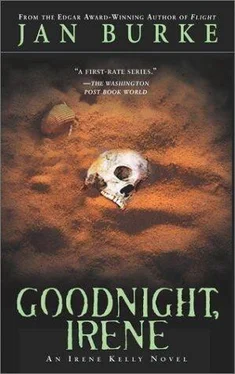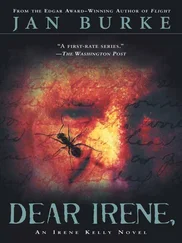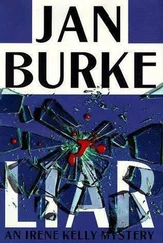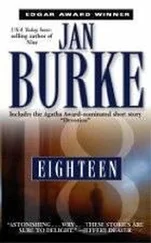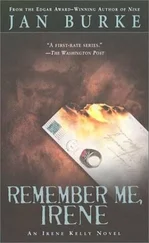Why sit right behind us? Was that his assigned seat, or did he just choose that seat on his own?
“Got any more of that gum?” I asked Pete.
“Sure,” he said, offering me a stick, and then holding one out to the kid.
“Thank you, sir, that’s very kind of you,” the kid said politely.
I know we both looked slack-jawed. I don’t know why. The hippie I dated in high school was the most well-mannered of any of the handful of guys I went out with.
We started down the runway and I saw Pete’s knuckles go white. I thought about how odd it was-here was a guy who could handle resuscitating a bloody man who was buried alive in sand, but he was scared silly by an airplane’s takeoff. For my part, few sensations were better than the rush of being airborne.
It was a short flight. They barely had enough time to hand out peanuts and drinks before we landed. Pete seemed to be bothered even more by landing. We were going to have to buy more gum before the day was over.
Once we were on the ground, Pete gradually relaxed. But as we pulled into the gate, he motioned to me to stay seated. “Wait,” he said.
We watched all the other passengers leave. The man whom I had started to think of as “Hawkeyes” was one of the first ones off the plane. Maybe I was imagining things after all.
Not having any baggage makes flying a totally different experience. Except for my windbreaker and purse, I had nothing to keep track of. We retrieved Pete’s gun from Phoenix Airport security, then went down to the car-rental counter to pick up the compact Fred had reserved for us. As I gave the information for the rental contract, Pete leaned with his back against the counter, watching the people around us.
Outside, the morning was already turning warm. Only 9:00 A.M. and it must have been about eighty degrees out. I asked Pete if he would mind if I did the driving. He didn’t, and after accidentally turning the windshield wipers on while trying to adjust the steering wheel, we were on our way to Gila Bend.
Traffic in Phoenix was a bitch, so it took us a while to get clear of the city and its immediate neighbors on U.S. 10. The road became less and less crowded as we moved west. We passed the dark-green swath of farmlands along the Gila River, crossing over the river itself near Buckeye. We made the turnoff on Highway 85, and the landscape changed as we went south through clusters of dry Arizona mountains.
For miles we saw few signs of human inhabitants. Scattered here and there were vacant farm houses along the road. Broken windows gave them a forlorn look, as if they were ashamed of their shabbiness. Already scrub brush and cacti were reclaiming the abandoned fields.
Pete yammered away throughout the trip.
“I grew up in upstate New York,” he told me. “Like a friend of mine says, ‘Only penguins should live there.’ You ever been to upstate New York? No? Well, I suppose for some people it’s got attractions. But every time I even start to miss it, you know what I do? I go out to my garage. I got a snow shovel out there. Honest to God. I’m probably the only guy in southern California with a snow shovel in his garage. Yeah, I just look at that snow shovel and think about what it feels like when there’s a good windchill factor and a driveway full of snow, and I say, ‘Just sit there, you bastard, I’m never picking you up again in my lifetime.’ No kidding. That’s what I do.”
Outside the car, it was probably nearing a hundred degrees, and I was listening to stories about snow shovels.
“How long you known Frank?” he asked.
“We met years ago in Bakersfield, but I haven’t seen much of him until-well, until this week,” I said, thinking of that morning on O’Connor’s front lawn. Was that only a few days ago?
“No foolin’? You knew him back in Bakersfield? I’ve just known him since he’s been in Las Piernas-what, about five years now? Smart guy. Really smart guy. You know, I’m not saying he’s Poindexter or anything, just sharp-you know what I mean? I mean, he never makes anybody else feel dumb. He’s good that way. You know, a lot of guys want to be homicide detectives, so when somebody gets promoted quickly, there might be resentment. But Frank, he’s the kind of guy that made it easy on everybody. They just like him. Works hard, doesn’t put anybody down, doesn’t go around with his nose stuck up in the sky-he’s a good cop. He doesn’t make the guys in uniform feel like lackeys.
“Yeah, I worked with him on his first case here. It was tough on him then, getting used to Las Piernas, new guys to work with. Plus, he broke up with his girlfriend. I guess he transferred down here partly because of some broad he knew in Bakersfield. She gets a job in Las Piernas, begs him to move; he no sooner gets transferred and she quits and goes back to Bakersfield. God knows why. She was with the Highway Patrol. He shoulda known right there. You know her? No? I don’t know what he saw in her. I told him, ‘Good riddance-a woman like that will make you crazy.’ But he hasn’t really been with anybody special since. You know, dated here and there, but nobody special.”
He gave me a meaningful look, and I casually tried to steer the conversation in another direction. “I didn’t know you and Frank had worked together so long.”
“Aw, five years is all. I’ve been tracking down corpse-makers for ten years-before that I spent another seven in uniform-all of it in Las Piernas. Place grows on you, you know what I mean?”
“Yes. I’ve lived in Las Piernas most of my life. There are only a handful of places in southern California where people really settle down, and Las Piernas is one of them. Lots of third generation locals. I suppose that’s no big deal compared to some parts of the country, but in the L.A. area…”
“You’re right. People are born and die in Las Piernas, and you look around and most people in neighboring towns are moving every few years. I love the place.”
We reached the outskirts of a town that looked like it hadn’t changed much in fifty years. A pockmarked sign announced that this was “Gila Bend-Home of 1700 Friendly People and Five Old Crabs.” The highway joined up with Interstate 8 at Gila Bend, and in turn became Pima Avenue. It looked as if Gila Bend was struggling through some tough times. Every third or fourth building stood abandoned. There were four or five motels designed on varying themes, and about as many fast-food places and gas stations. A couple of convenience stores rounded out the picture. I had just about reached the end of the town when I spotted the City Hall, which was attached to the Gila Bend Museum and Arizona Tourist Information Center.
“You passed the sheriff’s station several blocks ago,” Pete said, as I started to pull in to ask directions.
“If you knew that, why didn’t you speak up?”
“I wanted to see the rest of the town.”
Exasperated, I turned the car around and headed back up the street.
Soon we came to a fairly new one-story building of brown brick with Spanish tiles on the roof. The Maricopa County Sheriff’s Office. I pulled into a parking space.
“Okay,” I said, “let’s find out what they have on Hannah.”
“Don’t get your hopes up,” Pete warned.
We opened the car doors and were met with a blast of dry heat. We made our way into the building and felt the chill of air conditioning inside. “Out of the frying pan, into the freezer,” mumbled Pete.
It was a small station that also served as a part of the court system and as a detention center. We went up to a window and pressed an intercom button. A woman detention officer came to the window. Pete showed his ID and asked her if she would please let a deputy sheriff know we were there. A few minutes later, a door to our left was opened, and a tall man in a tan uniform came out to greet us. There was a warm smile on his rugged features. “You must be the folks from California. I’m Enrique Ramos,” he said. He was a big man, but he moved with ease and grace. I guessed him to be about fifty.
Читать дальше
